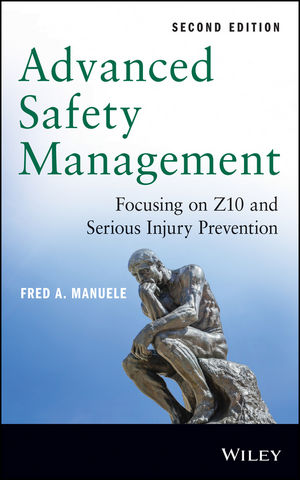

SOX has many an exec questioning their company’s “behavior.”
Unexpected impact
What are the unintended consequences of SOX? First, even though the law applies only to publicly traded companies, it has affected essentially all companies. Many privately held companies have also become much more aware of their accounting practices, and much more cautious about their own collective behavior in general — probably a positive. Indeed, some have worked hard to make themselves SOX compliant or close to it, even in the absence of a legal requirement to comply. So there has been a general awakening or reawakening of focus on business ethics, profoundly among businesses that fall under the purview of the law, but also among those which don’t. Various polls show that ethical business practices are near the top of the list in terms of companies’ focus and concerns. MBA classes in business ethics are more popular than ever, and are often a required part of the curriculum these days. Many, many conferences have been organized on the topic of business ethics. Indeed, my email this very morning included a call for papers for an international conference on “corporate social responsibility.”
Critical behaviors
To offer but one of many examples of the impact of SOX, in my consulting business I sometimes help companies develop competency sets, which are essentially collections of critical behaviors, attitudes and abilities relevant to successful performance in their cultures. I would have to say that in the last few years — since business put on its SOX, so to speak — the focus on business ethics in the competency sets I have worked with has been dramatically more pronounced.
In the most recent competency-modeling project I have helped with, leaders throughout the organization who were interviewed in the process of assembling the competency set almost universally identified ethical operation, “doing the right thing,” as the single-most critical competency for successful performance in the organization. That’s above functional expertise, communication, problem-solving, or any of the other familiar skill sets that traditionally show up as very important-to-critical. Again, doing the right thing was not only seen by all as important — it ranked #1.
Cost consequence
Another consequence of the law is a financial one. Simply put, the financial costs of SOX interpretation and compliance have been enormous. A recent estimate from a sample of Fortune 500 level publicly held corporations put the first-year costs at over $4 million per company. Subsequent yearly costs are generally lower, but still significant. Note too that some publicly-traded companies have worked not to just meet, but to exceed the SOX requirements, adding further to the fully loaded costs of verifiable compliance.
While the cost factor may be manageable by large firms, it can be daunting to small and mid-sized publicly held companies, which are required to comply and show compliance, regardless of their size. There is a suggestion in the popular literature that some significant percentage of small-to-mid-sized companies that might have been taken public have chosen not to do so in large measure due to SOX requirements and the financial burden of complying, and demonstrating compliance, with them. That’s not to say that such companies intend to operate unethically. They simply can’t afford the costs of demonstrating compliance with the many, many stipulations of the law.
It is a common perception of SOX in the companies I work with that while some of the provisions of the law are “sensible” and promote the aims of ethical operation, other provisions, sometimes quite expensive ones, are not as clearly linked with the mission of the law. They look to some like make-work requirements, keeping people busy and costing time, money and other resources, but not accomplishing the goals of the law. In this way, from the perspective of many affected organizations, there are unfortunate parallels between SOX and some of the safety-oriented requirements that numerous governmental oversight agencies impose on business.
Safety parallels
One critical parallel is that there are huge, visible costs associated with not attending to them. Organizations are often uncomfortable emphasizing, or indeed even mentioning, the fiscal pragmatics of safety or of corporate responsibility. There is some awkwardness attached to “putting a dollar value on a human life,” or outwardly expressing the view that operating ethically saves money — avoids costly fines (and keeps us out of jail, which is also quite a money saver). But whatever value labels and justifications we attach to promoting and requiring safe work and ethical behavior, it certainly is at the very least a foolish waste of money to operate unsafely or unethically.
A second point of comparison between safety and ethics is one we are all much more comfortable with. It is that we are good people, we care about the health and well-being of our mates, and we intend to be morally and ethically exemplary in our behavior. We take the high road because it is the right thing to do. We care.
Good news
The good news is that we don’t have to choose between being mercenary and uncaring (“We are running a business — we have to attend to the bottom line”) at the one extreme, or “soft hearted/soft headed” and profligate with company resources (“How can you put a dollar value on a life!?”) at the other. Should we take care of the business or take care of the people? Pick both. Operating ethically and working safely accomplishes both these goals jointly.
SOX, and the dastardly deeds that spawned it, have focused or refocused us all on some simple principles that our mothers taught us, and still work in our more complex adult lives. Do the right thing. Take care of each other. Don’t do anything you wouldn’t be comfortable having to explain to your boss, the shareholders, the “friendly auditor” OSHA, or even your sainted mother herself.
